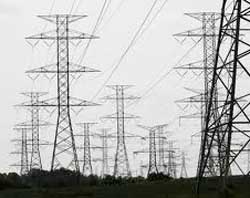Malware aimed at disrupting US and Europe's energy supplies

The US security firm Symantec said it identified malware targeting industrial control systems which could sabotage electric grids, power generators and pipelines.
"The attackers, known to Symantec as Dragonfly, managed to compromise a number of strategically important organisations for spying purposes," Symantec said in a blog post.
"If they had used the sabotage capabilities open to them, (they) could have caused damage or disruption to energy supplies in affected countries," it added.
The researchers said this malware is similar to Stuxnet, a virus believed to have been developed by the United States or Israel to contain threats from Iran.
"Dragonfly bears the hallmarks of a state-sponsored operation, displaying a high degree of technical capability," Symantec said.
"Its current main motive appears to be cyber-espionage, with potential for sabotage a definite secondary capability," it claimed
Cyber-attacks could cripple infrastructure
Symantec said the Dragonfly, also known as Energetic Bear, appeared to be an operation based in Eastern Europe calculated by the hours of activity of those involved.It said one of the tools was a Trojan that appeared to have originated in Russia.
Officials in the US and elsewhere in recent months have expressed growing concerns about cyber-attacks which could cripple critical infrastructure systems such as power grids, water systems or transportation networks.
The Dragonfly group has used several infection tactics including spam email with malicious attachments and browser tools that are capable of installing malicious.
Once installed on a victim's computer, the malware gathers system information and can extract data from the computer's address book and other directories.
"The Dragonfly group is technically adept and able to 'think' strategically," Symantec said.
"Given the size of some of its targets, the group found a 'soft underbelly' by compromising their suppliers, which are invariably smaller, less protected companies," it said.
Symantec said it had notified victims of the attacks as well as relevant national authorities, such as the US Computer Emergency Response Team.
The affected companies were not named, but Symantec said targets of Dragonfly included energy grid operators, major electricity generation firms, petroleum pipeline operators, and energy industry equipment providers.
Most targets were located in the United States, Spain, France, Italy, Germany, Turkey, and Poland.
Source: AFP via I-Net Bridge
Source: I-Net Bridge

For more than two decades, I-Net Bridge has been one of South Africa’s preferred electronic providers of innovative solutions, data of the highest calibre, reliable platforms and excellent supporting systems. Our products include workstations, web applications and data feeds packaged with in-depth news and powerful analytical tools empowering clients to make meaningful decisions.
We pride ourselves on our wide variety of in-house skills, encompassing multiple platforms and applications. These skills enable us to not only function as a first class facility, but also design, implement and support all our client needs at a level that confirms I-Net Bridge a leader in its field.
Go to: http://www.inet.co.za







